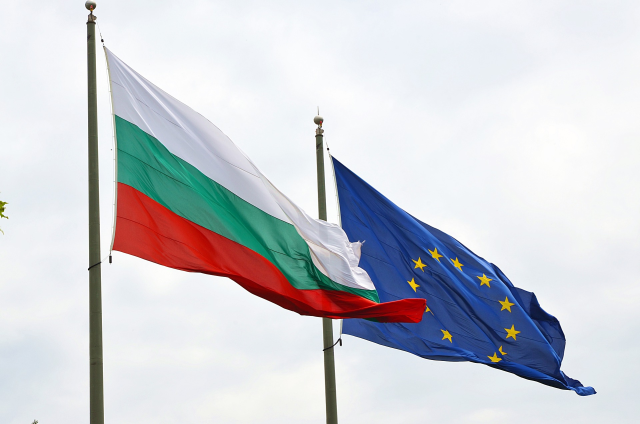Bulgaria takes over rotating EU presidency
11 years after its EU accession, Bulgaria takes over the presidency of the European Council

Bogdan Matei, 11.01.2018, 12:41
Deemed by most specialists as the poorest member of the European Union and criticized, both by its own citizen, as well as by its Western partners, for its ineffectiveness in combating corruption, Bulgaria hopes that its first term at the helm of the EU should significantly improve its image.
Under the slogan “Unity Makes Strength, Bulgaria will focus its efforts on three main directions: consensus, competitiveness and cohesion. The number one priority, according to Sofia, is the future of Europe and young people. Overseeing Brexit negotiations, the European prospects of countries in the Western Balkans, security and stability in a strong and united Europe, and combating illegal migration also rank high on the Bulgarian presidencys agenda.
The Bulgarian Foreign Minister, Ekaterina Zaharieva, expressed hope that Bulgaria would join the Schengen Area by the end of the year, admitting that there are countries within the EU that believe Bulgaria and Romania dont belong to the travel-free area due to unsolved corruption issues. “The latest vote in the European Parliament showed that these skeptics are becoming fewer, but we can’t be absolutely certain that they will change their mind in the next six months, Minister Zaharieva told the press.
In turn, Prime Minister Boiko Borisov hopes that Brussels would lift the Cooperation and Verification Mechanism, under which Bulgarias and Romanias efforts to reform their justice systems and combating top-level graft have been monitored ever since the two countries joined the EU in 2007.
Romania is set to take over the rotating presidency of the European Council on January 1, 2019. This week Minister Delegate for European Affairs, Victor Negrescu, updated EU leaders with respect to the ongoing preparations ahead of Bucharests European presidency. According to a press release, the timetable for the six-month mandate has already been sketched out, while internal consultations are underway with a view to identifying Romanias topics of interest, at the level of public ministries and institutions. Victor Negrescu also discussed with EU officials ways to coordinate actions in order to set out the operational program of the Trio of Presidencies, which starts on January 2019 and also includes Finland and Croatia. Bucharest wants to be an unbiased mediator while holding the EU presidency, seeking to advance the European agenda by accommodating the views of as many Member States as possible, Minister Negrescu also said.
(translated by: Vlad Palcu)






























